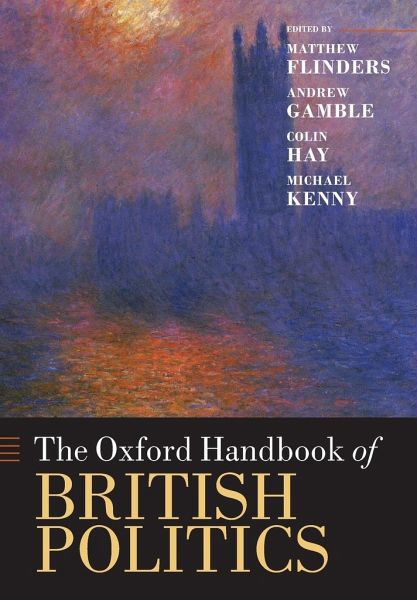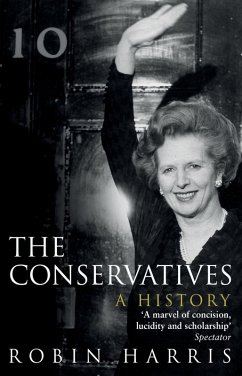
The Oxford Handbook of British Politics
Versandkostenfrei!
Versandfertig in 1-2 Wochen
78,99 €
inkl. MwSt.

PAYBACK Punkte
39 °P sammeln!
The study of British politics has been reinvigorated in recent years as a generation of new scholars seeks to build upon a distinct disciplinary heritage while also exploring new empirical territory and finds much support and encouragement from previous generations in forging new grounds in relation to theory and methods. It is in this context that The Oxford Handbook of British Politics has been conceived. The central ambition of the Handbook is not just to illustrate both the breadth and depth of scholarship that is to be found within the field. It also seeks to demonstrate the vibrancy and ...
The study of British politics has been reinvigorated in recent years as a generation of new scholars seeks to build upon a distinct disciplinary heritage while also exploring new empirical territory and finds much support and encouragement from previous generations in forging new grounds in relation to theory and methods. It is in this context that The Oxford Handbook of British Politics has been conceived. The central ambition of the Handbook is not just to illustrate both the breadth and depth of scholarship that is to be found within the field. It also seeks to demonstrate the vibrancy and critical self-refl ection that has cultivated a much sharper and engaging, and notably less insular, approach to the terrain it seeks to explore and understand. In this emphasis on critical engagement, disciplinary evolution, and a commitment to shaping rather than re-stating the discipline, The Oxford Handbook of British Politics is consciously distinctive.












